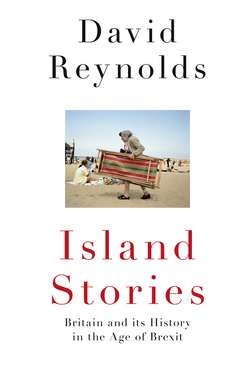Читать книгу Island Stories: Britain and Its History in the Age of Brexit - David Reynolds - Страница 16
The Channel – transcended yet triumphant
ОглавлениеDuring the century between 1815 and 1914, Britain tried to maintain its hybrid grand strategy – maritime and continental – by new means. Global expansion, often conducted by limited wars such as the conquest of Egypt in 1882, was combined with periodic bouts of calculating diplomacy to maintain a European balance. Throughout, large-scale wars such as the Crimea (1854–6) and South Africa (1899–1902) were the exception. But in the last decades of the nineteenth century – after the geopolitical turning points of American and German unification between 1861 and 1871 – the implications of Britain’s relative decline began to kick in. During the long eighteenth century the British had battled against a single foe, France, for European stability and global hegemony. The struggle was immense, but the chess game was essentially simple. By 1900, however, the country faced simultaneous challenges on the continent and globally from a variety of powers, even though Germany was the most threatening because closest to home. The first German war (1914–18) was won by Britain and France, but only with massive American help; in the second France quickly became irrelevant geopolitically and America all-important. In the process the Channel lost much of its strategic significance – transcended by the bomber and then the nuclear missile. Yet its psychological importance for British identity was triumphantly re-asserted by the events of 1940. The era of the two world wars requires closer attention because it has become central to national debate.
In the late-nineteenth century, Britain’s default response in the face of multiple challengers was a policy of selective ‘appeasement’ – in those days a perfectly respectable diplomatic term. It meant, according to historian Paul Kennedy, ‘satisfying grievances through rational negotiation and compromise, thereby avoiding the resort to an armed conflict which would be expensive, bloody, and possibly very dangerous’.[29] But the rationality and acceptability of appeasement was more obvious to the British than to others. ‘We are not a young people with an innocent record and a scanty inheritance,’ Churchill privately admitted in 1914. ‘We have got all we want in territory and our claim to be left in the unmolested enjoyment of vast and splendid possessions, mainly acquired by violence, largely maintained by force, often seems less reasonable to others than to us.’[30] He chose to omit the italicised phrases when quoting this memorandum in his war memoirs – a sign, presumably, of his awareness that they did not accord with what the British liked to present as their principled love of peace.
The United States, at least, could be managed around the turn of the century by calculated appeasement – backing down on points of friction, while playing up the economic and cultural ties between the two ‘Anglo-Saxon’ powers. The US was a force only in the Americas and the Pacific, with – at this stage – minimal political engagement in Europe. In Europe itself, Germany was not geographically a direct threat – unlike Napoleonic France had been. However, its aspirations under Kaiser Wilhelm II to become a ‘world power’ equal to the others did pose a serious challenge, especially in the 1900s when Germany built a large modern fleet to rival the Royal Navy. This prompted Britain to draw closer to France and Russia – colonial rivals in North Africa and the Indian subcontinent respectively but also European states that feared the growth of German military power. The Anglo–French entente of 1904 and the Anglo–Russian agreement of 1907 were intended to resolve, or at least reduce, imperial tensions in the interests of deterring Germany.
